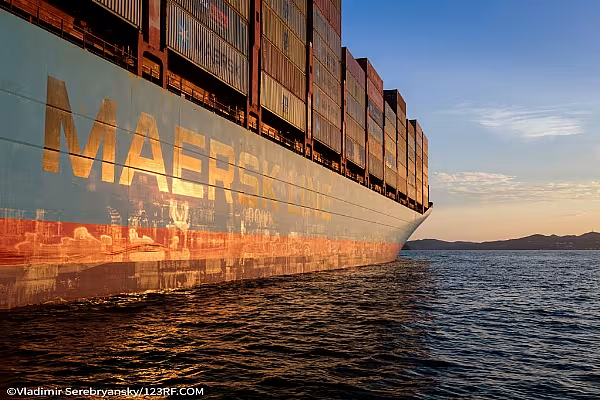Shipping company Maersk has said the global demand for container transport is expected to continue to grow in the next few quarters albeit at a slower pace as substantial market risks persisted.
The Danish company also confirmed preliminary second-quarter earnings released last week when it raised its outlook for the third time since May, citing higher freight rates due to the Red Sea crisis and solid container shipping demand.
Second-Quarter Demand
Maersk, viewed as a barometer of world trade, on Wednesday said global container demand was estimated to have grown 5% to 7% in the second quarter, boosted by strong Chinese exports which grew 10% compared to a year ago, among other factors.
'Global container demand growth is expected to remain positive in coming quarters, but likely at a slower pace,' the company said in its earnings report.
Maersk last week also cautioned that prospects for the fourth quarter were uncertain.
'A healthy, albeit cooling labour market, and wage gains are expected to continue to support U.S. consumers. Declining consumer confidence and savings, however, are clouds at the horizon,' Maersk said on Wednesday.
For the full year, it expects global container market volumes to increase by 4% to 6%.
'Trending In The Right Direction'
"Our results this quarter confirm that performance in all our businesses is trending in the right direction," commented Vincent Clerc, chief executive. "Market demand has been strong, and as we have all seen, the situation in the Red Sea remains entrenched, which leads to continued pressure on global supply chains.
"These conditions are now expected to continue for the remainder of the year. We have invested in additional equipment in all our businesses to adapt to the situation and continue supporting our customers through the disruptions."
Shipping disruptions caused by Houthi militants' attacks on vessels in the Red Sea were expected to last at least until the end of the year, Maersk has said.
The attacks have drawn U.S. and British retaliatory strikes and disrupted global trade but Maersk and rivals have benefited from longer sailing times and soaring freight rates as ships are rerouted around Africa.
Additional reporting by ESM














